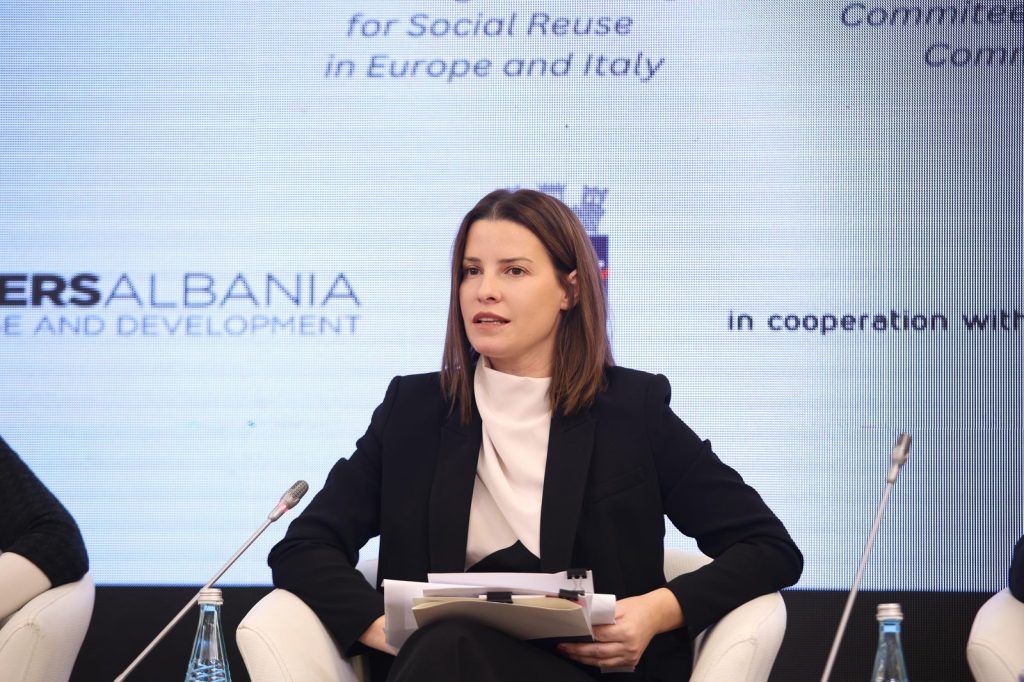Social Reuse of Seized Assets, Xhaja: Strengthening Monitoring Mechanisms and Increasing Transparency
February 12, 2025
The Chief Administrator of the Agency for the Administration of Seized and Confiscated Assets, Ms. Risena Xhaja, was present at the first panel discussion of the International Conference “From Illicit Profits to Public Good: The Future of Confiscated Assets”. The conference organized by “Partners Albania” brought together representatives of state agencies responsible for the administration […]
The Chief Administrator of the Agency for the Administration of Seized and Confiscated Assets, Ms. Risena Xhaja, was present at the first panel discussion of the International Conference “From Illicit Profits to Public Good: The Future of Confiscated Assets”. The conference organized by “Partners Albania” brought together representatives of state agencies responsible for the administration of seized and confiscated assets, foreign and local experts, as well as civil society actors.
The event was welcomed by the Minister of Interior, Mr. Ervin Hoxha, who praised the work being done by the Agency for the Administration of Seized and Confiscated Assets (AAPSK), also regarding the social reuse of confiscated assets.
Mentioning some of the results achieved by the AAPSK, Minister Hoxha stated that “there are a considerable number of buildings or premises that have been confiscated and put at the service of the public. Even the Agency itself works today in confiscated offices. Our goal is for the confiscated assets to maintain their value and possibly increase in value so that they can be inventoried as material goods at the service of citizens”.
The Chief Administrator of the AAPSK, Ms. Xhaja, during the discussions at the conference stated that despite the legal and operational challenges in carrying out its duties, the Agency has managed to increase revenues from the good management of seized and confiscated assets.
Ms. Xhaja emphasized that further legal improvements are needed, which should aim at a more complete and detailed regulatory framework for the administration and reuse of confiscated assets.
Regarding operational challenges, the Chief Administrator of the AAPSK mentioned limited human and financial resources. “The management of confiscated assets is often a complex process, requiring expertise and specialized equipment. The Agency must stay up to date with best practices and technological developments to ensure efficient management,” said Ms. Xhaja.
The Chief Administrator appreciated the support of the Inter-Institutional Committee for Measures against Organized Crime, as the supervisory body for the activities of the AAPSK and which makes important decisions regarding the effective use of seized and confiscated assets.
In order to increase the effectiveness of the reuse of confiscated assets for social benefits, the AAPSK has identified several priorities and mechanisms that need to be strengthened, starting from improving the Agency’s capacities, human resources, infrastructure and technology, strengthening transparency and accountability mechanisms, further promoting cooperation and partnerships with other state institutions and civil society organizations.
Ms. Xhaja also emphasized the need to create effective monitoring and evaluation mechanisms, as well as increasing information and broader public involvement regarding the importance of reusing confiscated assets for social purposes.



